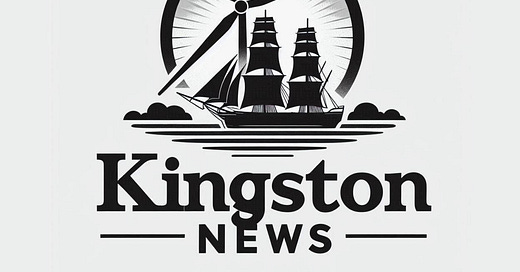Kingston Faces Budget Crunch, Aims to Avoid Override
Town officials recommend 4% increase for FY26, grapple with reduced new growth revenue
KINGSTON, MA - October 30 - Kingston's Finance Committee and Board of Selectmen are recommending a 4% budget increase for fiscal year 2026, aiming to avoid a Proposition 2 1/2 override as the town faces significant financial challenges.
At a joint meeting on Oct. 30, officials discussed the town's fiscal outlook, highlighting reduced new growth revenue and increasing costs in education and public safety as key concerns.
Finance Committee Chairman Carl Pike presented an analysis showing that a 3% budget increase would maintain about $700,000 in excess levy capacity, while a 4% increase would nearly eliminate it.
"I would live with the 4%, with the idea that I don't want to make tremendous reductions," Pike said. "I'm asking the schools to come in at 4%, no matter what the situation is, that you've got to find a way to come in at 4%."
The Finance Committee voted 4-2 against recommending any budget requiring a Proposition 2 1/2 override. They then unanimously recommended a budget increase not exceeding 4% for FY26. The Board of Selectmen subsequently voted to support this recommendation.
Town Administrator Keith Hickey cautioned that even a 4% increase could mean service reductions.
"We should be trying to live within the means that we have in my humble opinion," Hickey said. "Some of the things that we have no control over, those being, we've gone from a $2 million, give or take, and I think it's a little bit more than that ... increase in new growth, we're estimating right now $350,000."
This dramatic drop in new growth revenue is largely attributed to the town's water moratorium, which limits development. Finance Committee member Michael Cowett highlighted the impact of this reduction.
"That's a difference of about 1.4 million," Cowett said. "And in the percentage terms that we're talking about, that would mean the difference between being able to fund growth without an override in the neighborhood of four, four and a half percent, versus being able to fund it ... at near 8%."
Officials also discussed the challenges facing the school budget. Board of Selectmen Chairman Eric Crone noted that the schools are facing a potential deficit due to changes in special education funding and costs associated with students staying at a local hotel and in apartments at the mall.
"We need more help from the state," Crone said. "We need to put pressure on the state to help us with just basic education."
The town is also facing increased costs for police and fire services, with Pike mentioning over $1 million in requested increases from these departments.
Hickey warned that the budget challenges are not likely to be resolved quickly.
"I'm concerned that we're not, this isn't a blip, a one-year blip that we're facing. This is a three or four-year challenge potentially until we are back up and running and are able to take advantage of or utilize the new growth to help us absorb the inflationary costs that we're facing," he said.
Despite the challenges, officials emphasized the need for careful financial management. Pike noted that Kingston has historically maintained excess levy capacity, which helps the town's bond rating and provides flexibility in budgeting.
The joint meeting marked the beginning of the budget process for FY26. Detailed department budgets are expected to be presented and reviewed in the coming months, with final decisions likely to be made in the spring.



